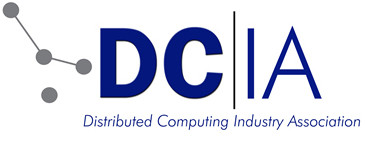In This Issue
- Cinco de Mayo Msg
- David Vs. Goliath
- DRM: Access Control
- Misguided Opposition
- Industry Acceptance
- Potential User Impact
- Freedom of Speech
- Beyond Transparency
- Access and Protection
- Opponent Hypocrisy
- Internet Security
- An Age-Old Problem
- DRM Advancement
- Time Now for Action
- Industry-Wide Change
- Vol Code of Conduct
- A Better Future
Cinco de Mayo Message
Excerpted from DRM MANIFESTO  For those hoping for a frothy and free-wheeling Cinco de Mayo message, this will surely disappoint. But for those willing to consider a serious topic and take an open-minded approach, this communiqué could mark a turning point for an oft-maligned industry and provide an opportunity to act meaningfully to benefit all Internet users — and people in general. Today’s date is observed to commemorate the Mexican army’s unlikely triumph over French forces at the Battle of Puebla on May 5, 1862. The victory represented a significant morale boost to the people of Mexico. As noted on The History Channel, “Zaragoza’s success at Puebla represented a great symbolic victory for the Mexican government and bolstered the resistance movement.” And as Time Magazine remarked, “The Puebla victory came to symbolize unity and pride for what seemed like a Mexican David defeating a French Goliath.” It helped establish a much-needed sense of national unity and patriotism… Read More
For those hoping for a frothy and free-wheeling Cinco de Mayo message, this will surely disappoint. But for those willing to consider a serious topic and take an open-minded approach, this communiqué could mark a turning point for an oft-maligned industry and provide an opportunity to act meaningfully to benefit all Internet users — and people in general. Today’s date is observed to commemorate the Mexican army’s unlikely triumph over French forces at the Battle of Puebla on May 5, 1862. The victory represented a significant morale boost to the people of Mexico. As noted on The History Channel, “Zaragoza’s success at Puebla represented a great symbolic victory for the Mexican government and bolstered the resistance movement.” And as Time Magazine remarked, “The Puebla victory came to symbolize unity and pride for what seemed like a Mexican David defeating a French Goliath.” It helped establish a much-needed sense of national unity and patriotism… Read More
A David Vs. Goliath Mission
Excerpted from DRM MANIFESTO  In that spirit, we seek to commence an era of new industry accord and resolve for those engaged in improving the integrity, security, and value of the Internet for software development, broadband access, data storage, and content delivery; and for consumers and enterprise end-users of web-based services. For theirs is also a David vs. Goliath mission; and it is one of seriously increasing importance to be encouraged rather than disparaged. Unlawful attempts to justify digital infringement and disruption are now threatening far more than the economic insult inflicted by the pirating of music tracks or the hacking of company emails. With the emergence of the Internet of Things (IoT) heralding such advances as connected automobiles and embedded medical devices, seeking to overturn the work of those charged with protecting these data systems can result not only in data loss, but also in serious physical injury or death. The horrors of a fatal accident as a result of a brake failure caused by compromising and sabotaging a connected car or death as a result of heart failure caused by compromising and sabotaging a connected pacemaker are all too real… Read More
In that spirit, we seek to commence an era of new industry accord and resolve for those engaged in improving the integrity, security, and value of the Internet for software development, broadband access, data storage, and content delivery; and for consumers and enterprise end-users of web-based services. For theirs is also a David vs. Goliath mission; and it is one of seriously increasing importance to be encouraged rather than disparaged. Unlawful attempts to justify digital infringement and disruption are now threatening far more than the economic insult inflicted by the pirating of music tracks or the hacking of company emails. With the emergence of the Internet of Things (IoT) heralding such advances as connected automobiles and embedded medical devices, seeking to overturn the work of those charged with protecting these data systems can result not only in data loss, but also in serious physical injury or death. The horrors of a fatal accident as a result of a brake failure caused by compromising and sabotaging a connected car or death as a result of heart failure caused by compromising and sabotaging a connected pacemaker are all too real… Read More
DRM Means Access Control
Excerpted from DRM MANIFESTO 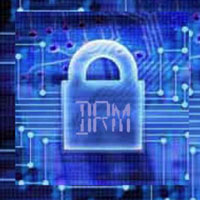 A term-of-art employed to describe a principal area of endeavor performed by those working to prevent these tragedies is Digital Rights Management (DRM), which has been subject to a barrage of misplaced criticism, uninformed disrespect, intentional misunderstanding, and undeserved opposition. A neutral synonym for DRM is access control. Controlling access is what provides security, protects privacy, and ensures safety for all Internet users; and it is access control precisely that is becoming a life-and-death matter. At a time when controlling access to Internet communications of all kinds is more critical than ever, misguided opponents of DRM are mounting new assaults. Without consideration of abatement or attempting resolution of any legitimate concerns, the “Free Software Foundation (FSF),” for example, is attempting to resurrect its “Defective by Design (DbD)” campaign under the subject line “Hate DRM? Tell the World on May 6th.” In the spirit of transparency, yes — the timing of our message to preempt the 2015 DbD by one day is intentional… Read More
A term-of-art employed to describe a principal area of endeavor performed by those working to prevent these tragedies is Digital Rights Management (DRM), which has been subject to a barrage of misplaced criticism, uninformed disrespect, intentional misunderstanding, and undeserved opposition. A neutral synonym for DRM is access control. Controlling access is what provides security, protects privacy, and ensures safety for all Internet users; and it is access control precisely that is becoming a life-and-death matter. At a time when controlling access to Internet communications of all kinds is more critical than ever, misguided opponents of DRM are mounting new assaults. Without consideration of abatement or attempting resolution of any legitimate concerns, the “Free Software Foundation (FSF),” for example, is attempting to resurrect its “Defective by Design (DbD)” campaign under the subject line “Hate DRM? Tell the World on May 6th.” In the spirit of transparency, yes — the timing of our message to preempt the 2015 DbD by one day is intentional… Read More
Misguided Opposition
Excerpted from DRM MANIFESTO 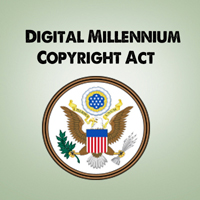 Deliberately mischaracterizing DRM as Digital “Restrictions” Management, FSF seeks to incite unlawful behavior by demonizing DRM as instilling an “oppressive effect” and stridently inciting consumers to “fight against DRM” and “regain the control of our technology” on its so-called “International Day Against DRM,” which upon even a modicum of reflection is as ill-conceived as it is dangerous. FSF goes on to mock and condemn the otherwise highly-regarded work of the US Library of Congress (LoC) in granting reasonable exemptions from the anti-circumvention provisions of the Digital Millennium Copyright Act (DMCA), accusing the venerated LoC of “doing whatever the heck it wants,” smearing its thoughtful and balanced decision-making process as “comically wrong,” and applying such euphemisms to lawbreaking infringers as merely “individuals who care about controlling their own computing.” FSF calls “every digital restriction an affront to freedom” and calls for the LoC to “simply end this madness and create an exemption for all uses.” In a true black-is-white conflation, FSF wrongfully indicts protecting the integrity of data online as “criminalizing user freedom.” These inflammatory and wrongful exhortations come at a time when even the shadowy FSF must acknowledge that the civilized world… Read More
Deliberately mischaracterizing DRM as Digital “Restrictions” Management, FSF seeks to incite unlawful behavior by demonizing DRM as instilling an “oppressive effect” and stridently inciting consumers to “fight against DRM” and “regain the control of our technology” on its so-called “International Day Against DRM,” which upon even a modicum of reflection is as ill-conceived as it is dangerous. FSF goes on to mock and condemn the otherwise highly-regarded work of the US Library of Congress (LoC) in granting reasonable exemptions from the anti-circumvention provisions of the Digital Millennium Copyright Act (DMCA), accusing the venerated LoC of “doing whatever the heck it wants,” smearing its thoughtful and balanced decision-making process as “comically wrong,” and applying such euphemisms to lawbreaking infringers as merely “individuals who care about controlling their own computing.” FSF calls “every digital restriction an affront to freedom” and calls for the LoC to “simply end this madness and create an exemption for all uses.” In a true black-is-white conflation, FSF wrongfully indicts protecting the integrity of data online as “criminalizing user freedom.” These inflammatory and wrongful exhortations come at a time when even the shadowy FSF must acknowledge that the civilized world… Read More
Industry Acceptance & Adoption
Excerpted from DRM MANIFESTO 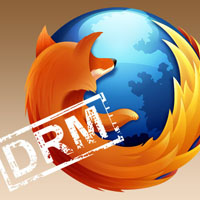 That these technology and media sector leading brands, among many, many others, have fully committed to using DRM is due in good measure to the conduct of DRM industry participants, who are working hard to meet their responsibilities to protect software developers, broadband network operators, end-users, and data rights-holders in effective, economically attractive — and less-and-less intrusive ways. Encryption, which is a core functionality of DRM, is essential to the development of software that generates and transmits sensitive data for the IoT. There would be no Wi-Fi without access control. Mobile cloud could not develop without encryption. Big data can only be of value if it is also secure data. And social networking would not work without privacy settings that are a function of DRM. The problem is not that DRM cannot be made perfect. Industry participants accept the existence of the “analog hole” for playback of content for human consumption, which opens up the possibility of re-recording content at that point. Just as everyone knows that in the physical world, locks can be picked, doors broken down, and walls penetrated; security monitors can be circumvented; guards blocked and police officers impeded from executing their duties to protect people and property… Read More
That these technology and media sector leading brands, among many, many others, have fully committed to using DRM is due in good measure to the conduct of DRM industry participants, who are working hard to meet their responsibilities to protect software developers, broadband network operators, end-users, and data rights-holders in effective, economically attractive — and less-and-less intrusive ways. Encryption, which is a core functionality of DRM, is essential to the development of software that generates and transmits sensitive data for the IoT. There would be no Wi-Fi without access control. Mobile cloud could not develop without encryption. Big data can only be of value if it is also secure data. And social networking would not work without privacy settings that are a function of DRM. The problem is not that DRM cannot be made perfect. Industry participants accept the existence of the “analog hole” for playback of content for human consumption, which opens up the possibility of re-recording content at that point. Just as everyone knows that in the physical world, locks can be picked, doors broken down, and walls penetrated; security monitors can be circumvented; guards blocked and police officers impeded from executing their duties to protect people and property… Read More
Potential Impact on Users
Excerpted from DRM MANIFESTO 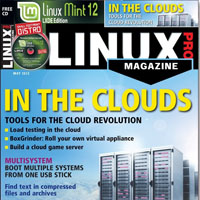 The problem is that this year’s FSF anti-DRM day does not represent the first time it has attempted to incite reckless, unlawful, and dangerous acts. And FSF’s malfeasance is not isolated to its DbD campaign. It regularly issues factually wrong but disturbingly incendiary public announcements that instigate anarchic behavior and oppose responsible use of the Internet. As Linux Magazine journalist Joe Brockmeier said, the DbD campaign by the FSF is “negative” and “juvenile,” and woefully inadequate because it fails to provide users with “credible alternatives” to proprietary software. We hope that every reader of this Cinco de Mayo message, regardless of his or her views on this subject, will take time, if not today, then at some other point in the near future, to deeply ponder the real issues at stake here, and carefully consider their potential impact on each one of us. The irony of confronting this matter on a minor holiday that celebrates accord fostered by an obscure military victory against long odds need not be lost on us; but let us resolve to make the right determination in actions that we take in addressing it… Read More
The problem is that this year’s FSF anti-DRM day does not represent the first time it has attempted to incite reckless, unlawful, and dangerous acts. And FSF’s malfeasance is not isolated to its DbD campaign. It regularly issues factually wrong but disturbingly incendiary public announcements that instigate anarchic behavior and oppose responsible use of the Internet. As Linux Magazine journalist Joe Brockmeier said, the DbD campaign by the FSF is “negative” and “juvenile,” and woefully inadequate because it fails to provide users with “credible alternatives” to proprietary software. We hope that every reader of this Cinco de Mayo message, regardless of his or her views on this subject, will take time, if not today, then at some other point in the near future, to deeply ponder the real issues at stake here, and carefully consider their potential impact on each one of us. The irony of confronting this matter on a minor holiday that celebrates accord fostered by an obscure military victory against long odds need not be lost on us; but let us resolve to make the right determination in actions that we take in addressing it… Read More
Freedom of Speech & Rule of Law
Excerpted from DRM MANIFESTO 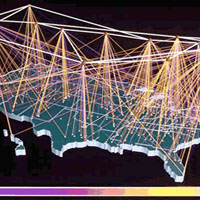 The Internet has thrived and advanced, more than in any other nation, in the United States of America (USA), a country based on great human principles, including one that states that all of its citizens are created equal, and that the rights of every citizen are diminished when the rights of one are denied. And the ideals of digital rights managers are bound in many ways to those of the USA, whose liberties include the proud proclamation of freedom of speech, but whose duties also encompass respect for the rule of law. DRM providers are sensitive to past criticism regarding inconvenience to legitimate end-users of content delivered over the Internet, and are resolved to ensure that this does not happen going forward. They deeply appreciate that the worst abuses made DRM as objectionable as malware, and are fully committed to corrective actions so that these do not recur. However, they are also adamant that translating accepted physical world norms for security — walls, doors, and locks — to the virtual world is not only justifiable, it’s wholly necessary. And they are confident that as in the physical world, digital equivalents of monitors and guardians are likewise required… Read More
The Internet has thrived and advanced, more than in any other nation, in the United States of America (USA), a country based on great human principles, including one that states that all of its citizens are created equal, and that the rights of every citizen are diminished when the rights of one are denied. And the ideals of digital rights managers are bound in many ways to those of the USA, whose liberties include the proud proclamation of freedom of speech, but whose duties also encompass respect for the rule of law. DRM providers are sensitive to past criticism regarding inconvenience to legitimate end-users of content delivered over the Internet, and are resolved to ensure that this does not happen going forward. They deeply appreciate that the worst abuses made DRM as objectionable as malware, and are fully committed to corrective actions so that these do not recur. However, they are also adamant that translating accepted physical world norms for security — walls, doors, and locks — to the virtual world is not only justifiable, it’s wholly necessary. And they are confident that as in the physical world, digital equivalents of monitors and guardians are likewise required… Read More
Beyond Transparency – Perceptible Invisibility
Excerpted from DRM MANIFESTO  When professional software developers sign-up for creating an innovative new application, or for materially improving features in an existing computer program or operating system, they do not sign-up to work in a world where they cannot earn income for their efforts, but neither do they sign-up to work in a world dominated by DRM considerations; they sign-up to receive payments for the value created by their work and the revenue generated from licensing or advertising or other business model. When broadband network operators sign-up to invest in the infrastructure to improve the access, speed, and reliability of their Internet access services, they do not sign-up for obtrusive DRM technologies to impede such advances; they sign-up to provide their subscribers with more robust and useful services. When consumers sign-up for entertainment services that use DRM, or access data files or streaming media that is DRM protected, they do not sign-up for the Advanced Access Content System (AACS), Content Scrambling System (CSS), Marlin DRM, Protected Media Path (PMP), or Windows Media DRM; they sign-up to access the content that the DRM system enables. And when professional content creators and distributors sign-up to devote their time, labor, and talent to producing.. Read More
When professional software developers sign-up for creating an innovative new application, or for materially improving features in an existing computer program or operating system, they do not sign-up to work in a world where they cannot earn income for their efforts, but neither do they sign-up to work in a world dominated by DRM considerations; they sign-up to receive payments for the value created by their work and the revenue generated from licensing or advertising or other business model. When broadband network operators sign-up to invest in the infrastructure to improve the access, speed, and reliability of their Internet access services, they do not sign-up for obtrusive DRM technologies to impede such advances; they sign-up to provide their subscribers with more robust and useful services. When consumers sign-up for entertainment services that use DRM, or access data files or streaming media that is DRM protected, they do not sign-up for the Advanced Access Content System (AACS), Content Scrambling System (CSS), Marlin DRM, Protected Media Path (PMP), or Windows Media DRM; they sign-up to access the content that the DRM system enables. And when professional content creators and distributors sign-up to devote their time, labor, and talent to producing.. Read More
Balancing Access and Protection
Excerpted from DRM MANIFESTO  Commercial pursuit and technological advancement are enabled. Both sides of the property rights equation — access and protection — are honored and protected. And security is omnipresent but unobtrusive. It ought to be possible, therefore, for software developers to protect their intellectual property (IP) and licensing terms without being confronted with hostility from self-proclaimed advocates of digital freedom like FSF. It ought to be possible for Internet service providers (ISPs) to safeguard the integrity of their offerings without the condemnation of entities like FSF. It ought to be possible for consumers to choose content and software that respects the rights of others and protects their own security without confronting antagonism from FSF. It ought to be possible for data rights-holders to defend their business models and ensure the integrity of their digital content delivery and be treated with tolerance, respect, and civility. And it ought to be possible for digital rights managers to work to ensure that the lawful intentions, business models, and fundamental security… Read More
Commercial pursuit and technological advancement are enabled. Both sides of the property rights equation — access and protection — are honored and protected. And security is omnipresent but unobtrusive. It ought to be possible, therefore, for software developers to protect their intellectual property (IP) and licensing terms without being confronted with hostility from self-proclaimed advocates of digital freedom like FSF. It ought to be possible for Internet service providers (ISPs) to safeguard the integrity of their offerings without the condemnation of entities like FSF. It ought to be possible for consumers to choose content and software that respects the rights of others and protects their own security without confronting antagonism from FSF. It ought to be possible for data rights-holders to defend their business models and ensure the integrity of their digital content delivery and be treated with tolerance, respect, and civility. And it ought to be possible for digital rights managers to work to ensure that the lawful intentions, business models, and fundamental security… Read More
Hypocrisy of Opponents
Excerpted from DRM MANIFESTO 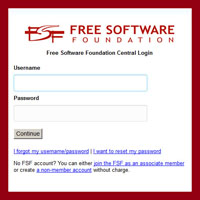 But this is not the case when the FSF and other ill-advised entities are doing all that they can to foment hate and destruction of DRM. Its DbD campaign would be excusable if after conducting it, FSF’s leaders took reasonable steps to work as responsible adults with digital rights managers to address whatever legitimate issues they have identified. Denying the opportunity for software developers, network operators, and content creators to earn compensation and jeopardizing the security and safety of consumers, however, are not reasonable expectations for the outcome of such discussions. The fact that DbD has happened not once, not twice, but nine consecutive times — and not once has FSF ever sought constructive resolution as a follow-up — is just not acceptable in today’s world. And FSF’s own hypocrisy need not be ignored. There are locks on the doors at its Franklin Street headquarters in Boston, MA; and its own website requires users to provide a password in order to log into their accounts (https://cas.fsf.org/login) — rather than providing free access to everything. This is not a problem solely of the FSF, however… Read More
But this is not the case when the FSF and other ill-advised entities are doing all that they can to foment hate and destruction of DRM. Its DbD campaign would be excusable if after conducting it, FSF’s leaders took reasonable steps to work as responsible adults with digital rights managers to address whatever legitimate issues they have identified. Denying the opportunity for software developers, network operators, and content creators to earn compensation and jeopardizing the security and safety of consumers, however, are not reasonable expectations for the outcome of such discussions. The fact that DbD has happened not once, not twice, but nine consecutive times — and not once has FSF ever sought constructive resolution as a follow-up — is just not acceptable in today’s world. And FSF’s own hypocrisy need not be ignored. There are locks on the doors at its Franklin Street headquarters in Boston, MA; and its own website requires users to provide a password in order to log into their accounts (https://cas.fsf.org/login) — rather than providing free access to everything. This is not a problem solely of the FSF, however… Read More
Internet Security – A Larger Issue
Excerpted from DRM MANIFESTO  Insensitivity regarding online infringement and recklessness with regard to Internet security exists throughout the digital ecosystem, and indeed at every level of human society. When a parent discovers but ignores the fact that his or her child has acquired a music collection or movie library by accessing a file-sharing system that does not support rights-holder authorization, he or she condones disrespect for the rights of others and embarks down a slippery slope in the direction of thievery, larceny, and worse. When an organization chooses to ignore the risks of exposing its employees and customers to unprotected data, it signals to the world that it is does not care whether its most important constituents are reasonably protected in the workplace and marketplace. When the US Congress considers, even for a minute, anarchic proposals like the Apollo 1201 Project, which unabashedly pursues the “eradication of DRM in our lifetime” by dismantling Section 1201 of the DMCA, it displays a reckless disregard for Internet security and the safety of American citizens. DMCA’s anti-circumvention clause is essential, given the ease with which digital replication and dissemination — including of a DRM breach… Read More
Insensitivity regarding online infringement and recklessness with regard to Internet security exists throughout the digital ecosystem, and indeed at every level of human society. When a parent discovers but ignores the fact that his or her child has acquired a music collection or movie library by accessing a file-sharing system that does not support rights-holder authorization, he or she condones disrespect for the rights of others and embarks down a slippery slope in the direction of thievery, larceny, and worse. When an organization chooses to ignore the risks of exposing its employees and customers to unprotected data, it signals to the world that it is does not care whether its most important constituents are reasonably protected in the workplace and marketplace. When the US Congress considers, even for a minute, anarchic proposals like the Apollo 1201 Project, which unabashedly pursues the “eradication of DRM in our lifetime” by dismantling Section 1201 of the DMCA, it displays a reckless disregard for Internet security and the safety of American citizens. DMCA’s anti-circumvention clause is essential, given the ease with which digital replication and dissemination — including of a DRM breach… Read More
Confronting an Age-Old Problem
Excerpted from DRM MANIFESTO 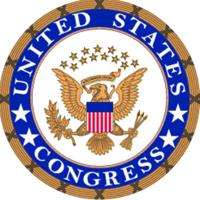 This should not need to be a matter that requires the heavy hand of federal government intervention. Well-intentioned measures, such as the recently introduced but not pursued “You Own Devices Act (YODA),” are not necessary to provide the legal authorization to package software, content, and hardware for sale in the consumer marketplace. The law already provides for such bundling of products and services. This should not even need to be an operational issue to be addressed by adding a paragraph to users’ manuals or end-user license agreements (EULAs). It would be far better to settle this matter through the simple practical adoption of common-sense good behavior. And while a sense of fair play and understanding and recognition that all users have rights that are equally deserving of protection are clearly needed, a change in attitude alone will not work for all Internet users. The problems of acceptance and mutual respect among groups of people are as old as civilization and as straightforward as the golden rule… Read More
This should not need to be a matter that requires the heavy hand of federal government intervention. Well-intentioned measures, such as the recently introduced but not pursued “You Own Devices Act (YODA),” are not necessary to provide the legal authorization to package software, content, and hardware for sale in the consumer marketplace. The law already provides for such bundling of products and services. This should not even need to be an operational issue to be addressed by adding a paragraph to users’ manuals or end-user license agreements (EULAs). It would be far better to settle this matter through the simple practical adoption of common-sense good behavior. And while a sense of fair play and understanding and recognition that all users have rights that are equally deserving of protection are clearly needed, a change in attitude alone will not work for all Internet users. The problems of acceptance and mutual respect among groups of people are as old as civilization and as straightforward as the golden rule… Read More
DRM Enables Advancement
Excerpted from DRM MANIFESTO 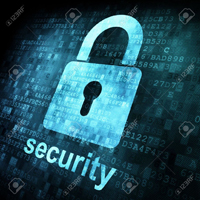 The argument that DRM favors large corporations over small entrepreneurs is entirely unfounded. Just as cloud computing brings enormous storage capabilities and computing power to very modestly funded entities, on a highly affordable basis; so DRM provides them with unprecedented opportunities to protect their software, data, and other digital assets on extremely attractive terms. The fact is that giant multinationals have many other resources to bring to bear on alleged violations; it is DRM that levels the playing field for the small entrants to enjoy the same protection when they don’t have such other major resources available. It is DRM that enables innovation and competition in the digital world. If Internet users, who happen to be software developers, cannot trust that licenses for their applications will be honored; if broadband network operators cannot trust their terms of service will be respected, if consumers cannot trust that their security and privacy will be protected; if content providers cannot trust that their works will not be infringed; then who among us should be content to continue indefinitely to use the Internet… Read More
The argument that DRM favors large corporations over small entrepreneurs is entirely unfounded. Just as cloud computing brings enormous storage capabilities and computing power to very modestly funded entities, on a highly affordable basis; so DRM provides them with unprecedented opportunities to protect their software, data, and other digital assets on extremely attractive terms. The fact is that giant multinationals have many other resources to bring to bear on alleged violations; it is DRM that levels the playing field for the small entrants to enjoy the same protection when they don’t have such other major resources available. It is DRM that enables innovation and competition in the digital world. If Internet users, who happen to be software developers, cannot trust that licenses for their applications will be honored; if broadband network operators cannot trust their terms of service will be respected, if consumers cannot trust that their security and privacy will be protected; if content providers cannot trust that their works will not be infringed; then who among us should be content to continue indefinitely to use the Internet… Read More
Time Now for Action
Excerpted from DRM MANIFESTO  It’s time to say no to that. The time has come for the Internet to fulfill its promise for all its users with clarity and truth on this very important matter. The events surrounding DbD and Apollo 1201 and elsewhere this year have brought this issue to the point that no Internet user can prudently choose any longer to ignore it, or kick the problem down the road for future users to address. The frustration can be felt among software developers, ISPs, consumers, content providers, and digital rights managers, where insensitivity is leading to disenchantment, and where even abandonment of the Internet in favor of closed broadband networks is becoming a consideration. We face primarily a moral issue. One that cannot be met by procrastination or obfuscation. One that cannot be quieted by token moves or idle talk. It is time finally to act, in our professional activities and, above all, in our daily lives. At its core, the problem stems from society’s advancement to the current information age and the increase in relative value of digital services, intangible goods, and virtual products. IP now must be afforded the same considerations that physical property… Read More
It’s time to say no to that. The time has come for the Internet to fulfill its promise for all its users with clarity and truth on this very important matter. The events surrounding DbD and Apollo 1201 and elsewhere this year have brought this issue to the point that no Internet user can prudently choose any longer to ignore it, or kick the problem down the road for future users to address. The frustration can be felt among software developers, ISPs, consumers, content providers, and digital rights managers, where insensitivity is leading to disenchantment, and where even abandonment of the Internet in favor of closed broadband networks is becoming a consideration. We face primarily a moral issue. One that cannot be met by procrastination or obfuscation. One that cannot be quieted by token moves or idle talk. It is time finally to act, in our professional activities and, above all, in our daily lives. At its core, the problem stems from society’s advancement to the current information age and the increase in relative value of digital services, intangible goods, and virtual products. IP now must be afforded the same considerations that physical property… Read More
Industry-Wide Change
Excerpted from DRM MANIFESTO 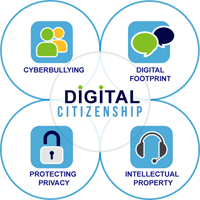 The FSF may not be prepared to make a commitment that it has not made in nearly a decade of mounting its ill-conceived war on DRM, to the proposition that disregarding the rights of others has no place in acceptable Internet behavior. And we have to accept the fact that the FSF may continue to refuse to seek resolution of whatever legitimate concerns it may have. But there are modest and practical measures we can take as individuals and in our companies and membership groups, to set an example, and possibly serve as role models for future adoption. We are, therefore, asking that all Internet users modify their behavior in incremental ways — and set an example for the rest of the world — by explicitly codifying the harmful behaviors we need to prevent at the same time as memorializing the beneficial practices we need to protect, and acting accordingly. A number of digital rights managers are taking voluntary action to adopt these measures as well. But many are unwilling to act alone, and for this reason, Internet-wide change is needed if we are to address this problem in any real and meaningful way… Read More
The FSF may not be prepared to make a commitment that it has not made in nearly a decade of mounting its ill-conceived war on DRM, to the proposition that disregarding the rights of others has no place in acceptable Internet behavior. And we have to accept the fact that the FSF may continue to refuse to seek resolution of whatever legitimate concerns it may have. But there are modest and practical measures we can take as individuals and in our companies and membership groups, to set an example, and possibly serve as role models for future adoption. We are, therefore, asking that all Internet users modify their behavior in incremental ways — and set an example for the rest of the world — by explicitly codifying the harmful behaviors we need to prevent at the same time as memorializing the beneficial practices we need to protect, and acting accordingly. A number of digital rights managers are taking voluntary action to adopt these measures as well. But many are unwilling to act alone, and for this reason, Internet-wide change is needed if we are to address this problem in any real and meaningful way… Read More
Voluntary Code of Conduct
Excerpted from DRM MANIFESTO 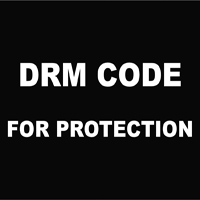 For prevention: 1. Our policy shall be not to support implementations of DRM that disrespect the rights of Internet users. 2. DRM shall not be unduly restrictive or harmful to any individual’s lawful use of the Internet. 3. DRM policies shall not impede Internet users from exercising lawful authorizations to back-up copies of digital content, access public-domain works, use copyrighted materials for research and education, or other permitted usages under fair use-laws. 4. DRM shall not require access to a single-thread authentication system to enable content access. 5. DRM shall not allow unauthorized users to have greater freedom of use or obtain greater utility than authorized users. These seem to be the core problems, and their elimination should remove arbitrary impositions and privacy intrusions that no Internet user should have to endure. We are also asking individual users and web-based companies to underscore the positives… Read More
For prevention: 1. Our policy shall be not to support implementations of DRM that disrespect the rights of Internet users. 2. DRM shall not be unduly restrictive or harmful to any individual’s lawful use of the Internet. 3. DRM policies shall not impede Internet users from exercising lawful authorizations to back-up copies of digital content, access public-domain works, use copyrighted materials for research and education, or other permitted usages under fair use-laws. 4. DRM shall not require access to a single-thread authentication system to enable content access. 5. DRM shall not allow unauthorized users to have greater freedom of use or obtain greater utility than authorized users. These seem to be the core problems, and their elimination should remove arbitrary impositions and privacy intrusions that no Internet user should have to endure. We are also asking individual users and web-based companies to underscore the positives… Read More
A Better Future
Excerpted from DRM MANIFESTO  Beyond that, we are on the side of advocating freedom in Internet activities, of benefiting from the multiplicity of opinions and advantages that are brought forth through free speech. Fostering the sense of community and good will towards other Internet users is at the center of our initiative. Other features may also be requested, including additional preventive and additional protective measures, and the implementation of these voluntary changes shall not be left to chance. But such efforts led by the actions of digital rights managers, we repeat, cannot solve this problem alone. It must be solved in the homes and in the cars and on the mobile devices of every individual and in the offices and in the factories and on the servers of every institutional user. In this respect we want to pay tribute to those consumers who have subscribed to services with DRM. They have been acting with basic moral consideration for right and wrong and respecting the rights of others. Like the most enlightened digital rights managers throughout the digital ecosystem, they are meeting the challenge of Internet security on the front line, and we salute them for their good character… Read More
Beyond that, we are on the side of advocating freedom in Internet activities, of benefiting from the multiplicity of opinions and advantages that are brought forth through free speech. Fostering the sense of community and good will towards other Internet users is at the center of our initiative. Other features may also be requested, including additional preventive and additional protective measures, and the implementation of these voluntary changes shall not be left to chance. But such efforts led by the actions of digital rights managers, we repeat, cannot solve this problem alone. It must be solved in the homes and in the cars and on the mobile devices of every individual and in the offices and in the factories and on the servers of every institutional user. In this respect we want to pay tribute to those consumers who have subscribed to services with DRM. They have been acting with basic moral consideration for right and wrong and respecting the rights of others. Like the most enlightened digital rights managers throughout the digital ecosystem, they are meeting the challenge of Internet security on the front line, and we salute them for their good character… Read More
